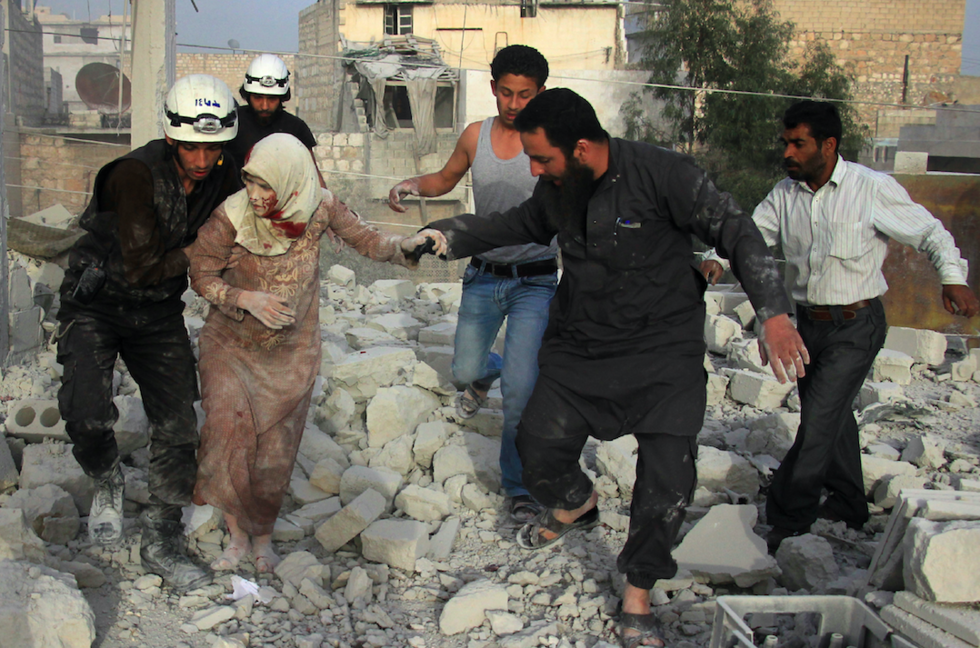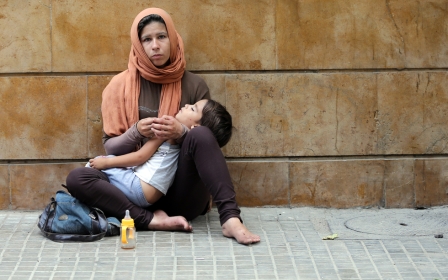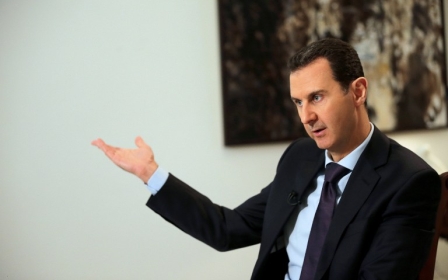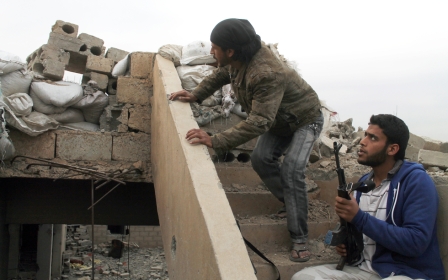Fighting rocks north Syria as fears of new Aleppo siege mount

Fighting escalated on several fronts in Syria on Thursday, further sparking concerns that the next round of peace talks in Geneva will be stillborn.
In the Swiss city, UN envoy Staffan de Mistura criticised President Bashar al-Assad's government for hindering efforts to deliver life-saving assistance to Syrians in need.
On the ground, government fighters, rebels and the Islamic State (IS) group battled for control of swathes of Aleppo province, threatening a nearly seven-week ceasefire that had seen violence decline.
Government loyalists backed by Russian air power pressed a fierce offensive just north of the provincial capital of Aleppo city, the Syrian Observatory for Human Rights said.
Fighting was heaviest around Handarat, a hilly area that lies along a route leading north out of opposition-held parts of the city.
Observatory head Rami Abdel Rahman said government forces, backed by Russian and Syrian planes, were seeking to cut off that road and "completely besiege" eastern neighbourhoods.
An AFP correspondent in opposition-held eastern Aleppo city said the air strikes could be heard throughout the day, but no raids hit the city itself.
"We're overwhelmed once again by fears of a government siege of Aleppo, after weeks of a ceasefire that may have just collapsed," said Ali Saber, a 32-year-old father of one living in Aleppo.
The assault has sparked "strong concerns" in Washington about the ceasefire, which came into force on 27 February but seems to have mostly collapsed in the north, although all sides have been careful to not announce an official end to the truce.
A senior US administration official said the offensive "could well violate the cessation of hostilities, which has... been under increasing pressure in recent weeks".
"Now is the time for all sides to follow through on their commitment to the cessation of hostilities and to refrain from any further destabilising actions," the official added.
EU foreign policy chief Federica Mogherini also expressed concern about the Aleppo offensive and called for the "respect, consolidation, and expansion" of the truce.
IS, which is not included in the ceasefire, has also gone on the offensive. The Observatory said on Thursday that IS fighters had seized a string of opposition-held villages near Syria's border with Turkey.
The most important among them was Hiwar Kallis, about one kilometre south of the Turkish frontier. Rebels had secured significant gains against IS in the area before the militants pushed them back this week.
'Disappointing' aid situation
President Vladimir Putin, a key backer of Assad, said during an annual call-in show on Thursday that he was "closely following" the latest spike in violence.
Putin last month announced a partial withdrawal from Syria, but warned Russia could return in full force should the situation require it.
He said opposition groups in Aleppo province were fighting alongside militant groups including al-Qaeda's local affiliate, the Nusra Front.
"To distinguish them is very difficult."
After reporting significant progress through the first two weeks of March, the UN said the humanitarian situation may deteriorate again.
"We are extremely concerned about the situation in northern Syria, including Aleppo governorate, where there has been a significant increase in incidents of violence that continues to aggravate the humanitarian situation," a UN humanitarian official told AFP.
The official said the UN was planning several aid deliveries to Afrin and Azaz - two flashpoint areas in the province - in coming days.
But UN envoy de Mistura said restrictions by Damascus have frustrated efforts to deliver much-needed assistance to besieged Syrians.
Despite several UN Security Council resolutions that call for unobstructed aid access to besieged areas, the government continues to frequently deny passage to convoys carrying assistance.
"Everyone in the meeting was disappointed," de Mistura told reporters after a weekly meeting of the so-called humanitarian taskforce.
"Many of [the countries] are actually frustrated by the lack of new convoys," he added, naming Douma and Daraya, both besieged by the government near Damascus, as being in dire need of aid.
De Mistura said he made some progress in Damascus by securing tentative permission to distribute medical supplies, but that the government had specifically excluded surgical equipment, anti-anxiety pills and atropine, which can be used to guard against chemical weapons, including sarin gas.
Syria's conflict began in 2011 as a peaceful revolt, with protests across the country that spread in 2012 to Aleppo province, which borders Turkey.
New MEE newsletter: Jerusalem Dispatch
Sign up to get the latest insights and analysis on Israel-Palestine, alongside Turkey Unpacked and other MEE newsletters
Middle East Eye delivers independent and unrivalled coverage and analysis of the Middle East, North Africa and beyond. To learn more about republishing this content and the associated fees, please fill out this form. More about MEE can be found here.




